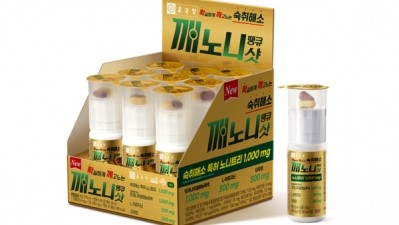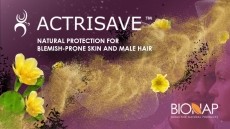Milk thistle, vitamin C, E most trusted for liver care among China’s night owls – BYHEALTH, Tmall

Aimed at understanding the behaviour of city dwellers that have the habit of sleeping late, the whitepaper analysed the survey responses of 3,000 individuals who identified as night owls.
Findings showed that they tend to trust milk thistle, vitamin C and E more when it comes to their knowledge of liver care ingredients.
Milk thistle ranked first with 71.7 per cent of the participants indicating trust in the ingredient. Vitamin C (65.1 per cent) and E (64.1 per cent) ranked second and third.
Turmeric, glutathione, and choline were the next most trusted out of the 11 ingredients listed in the survey.
This is followed by lycopene, inositol, artichoke, ginger, and resveratrol.
Milk thistle is also one of the most used liver care ingredients, and BYHEALTH itself has seen good traction for its milk thistle tablet product.
“Night owls have a significantly different level of understanding when it comes to liver care ingredients. Of which, milk thistle, vitamin C, and vitamin E have received greater awareness and are seen as effective elements for liver care.
“They tend to be unsure about turmeric, choline, lycopene etc [for liver care],” said the whitepaper.
“Milk thistle, as a botanical known for liver care, enjoys a greater public awareness. In contrast, there is less public exposure to glutathione, choline, resveratrol, and other novel liver care raw materials.
“Thus, there is lower understanding of these ingredients and authoritative scientific platforms are required to further the public’s understanding,” it added.
Liver health is one of the trending supplement categories in China and within the greater Asia Pacific dietary supplements market, liver health has recorded a CAGR of 23.7 per cent between 2020 and 2023, according to Euromonitor.
Based on the whitepaper, most survey respondents (82.6 per cent) believed that adjusting their lifestyles is most effective for liver care.
About seven in 10 (75.7 per cent) viewed taking liver care supplements as effective, and 71.1 per cent believed that a balanced diet is effective.
Customised formulations preferred
The whitepaper also reported that night owls prefer customised formulations over single ingredient liver care supplements.
Three in five (62 per cent) said they would choose “customised formulations that gives synergistic effects to address liver related problems.”
Trustworthiness of the brand came next, with 48.3 per cent of the respondents selecting this as a purchase criteria.
Single ingredient products, such as those containing only milk thistle or single botanical extracts ranked third, with 37 per cent of the respondents choosing this.
About one in 10 (15.6 per cent) looked at pricing and only 1.3 per cent were interested in product packaging or novel consumption methods.
Reasons for taking liver care supplements
Skin dulling was the most popular concern for choosing to take liver care supplements, with 50.3 per cent of the respondents choosing this as a need state.
This finding echoed another report published by JD and Nielsen, which said that China’s growing liver health supplement sector was driven by detoxification and skin brightening needs.
According to BYHEALTH and Tmall’s whitepaper, the other popular reasons include nourishing the liver and kidney (40.3 per cent), addressing low metabolism (40 per cent), low energy (36.9 per cent), and alleviating hair loss (32.2 per cent).
These concerns even ranked higher than anti-hangover, which is usually associated as a popular reason for taking liver care products.
Gender differences
Most women were taking liver care supplements to address skin dulling (16.3 per cent), while most men were taking it to nourish their liver and kidney (14.9 per cent), according to the whitepaper.
The other top two concerns for women were for addressing low metabolism (12.8 per cent), followed by nourishing liver and kidney (11.8 per cent).
As for men, the other top two concerns were for addressing low energy levels (13.3 per cent) and oily face and scalp (12.2 per cent)
Only 0.44 per cent of women and 1.7 per cent of men said they would take liver care supplements to address hangovers.
Designing women-specific liver health supplements has become a priority for companies like Homart and BYHEALTH.
Homart told us earlier that it launched “Women Liver Protect” and “Liver Care and Beauty” this year under its brand Spring Leaf.
The formulations were based on consumer feedback and trends observed from e-commerce and their customer relationship management system.
BYHEALTH, on the other hand, also pointed out in their Growth Asia Summit 2024 presentation that liver health was closely linked to skin health for women. The company also developed the product “Women’s Care & Liver Cleanse”.



















